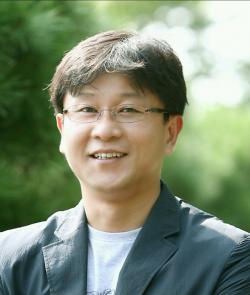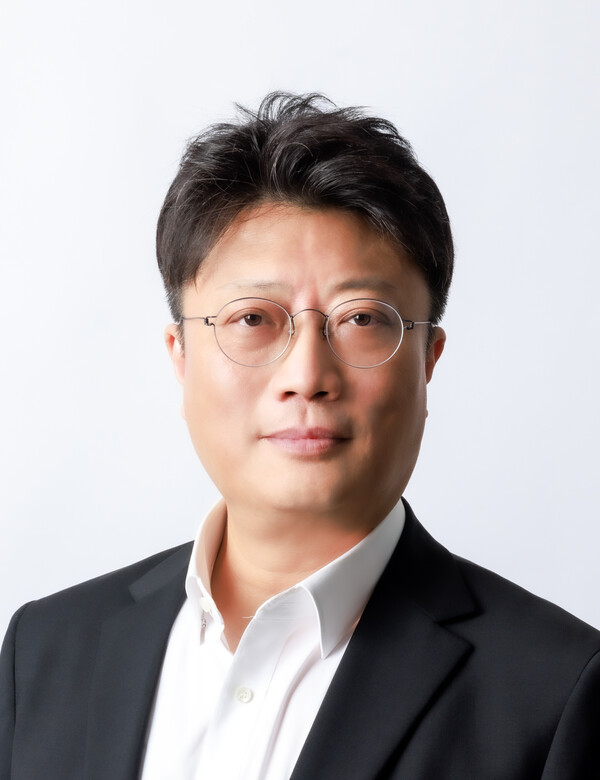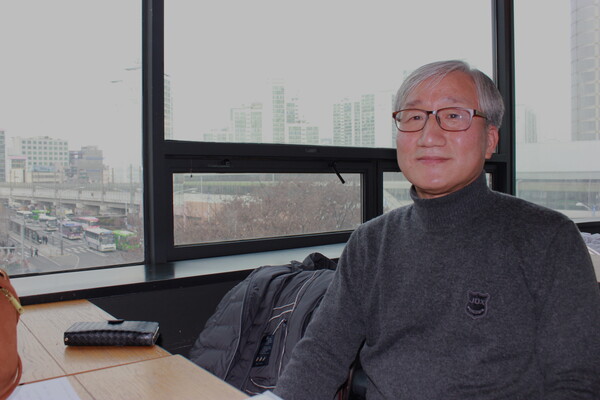
Being Rich in My Fantasy
“I inherited wealth, you inherited poverty,” is a line from the Korean drama Reborn Rich, which hit the end of 2022. It tells the story of a man who was born as a poor secretary but was resuscitated after an accidental death, inheriting a large company from a chaebol family. The Korean public was fanatical about the drama. They felt both vicarious satisfaction and resentment toward the competition for wealth. Ironically, if you look closely at the content, you can realize a dark message conveyed by the Korean media. Without imaginary rebirth, great wealth cannot be acquired, and inheritance is the only way to acquire it.
Like Father, Like Son
In Korea, one’s wealth is linked to one’s job. This is because people with decent jobs have fixed incomes and can usually accumulate wealth. The young compete for limited jobs, but it is unclear whether the starting line is the same for every competitor.
To ensure fairness, Korean workers have “labor’s three primary rights”: the right to organize, bargain, and act collectively. Workers can form groups based on these rights and suggest their desired working conditions to their companies. In other words, labor unions and companies can sign a collective agreement. However, this January, the Ministry of Employment and Labor announced that 57 out of 60 companies with more than 100 workers are correcting illegal collective agreements related to “preferential and special employment,” in which the company would hire the offspring of long-term or retired employees. The government considered that those kinds of special employments as job inheritances which hindered hiring process fairness.

Son Mi-joung, a professor of the Department of Criminology at Keimyung College University asserted that “Collective bargaining and the conclusion of collective agreements on working conditions should be respected, but they should not undermine the basic order of the community or infringe on the rights of third parties.” Accordingly, 38 companies deleted the agreements voluntarily, and 13 companies did so after receiving correction orders from the government. The Korean government is also planning to strengthen corresponding punishment because currently, if companies do not comply with the government’s correction orders, they will only receive a fine of maximum 5 million won.
Nepotism: Clothes Covered in Purple Jewels
Parents inherit their jobs to their children, and those children occupy the position of other competent people. This hereditary succession has existed in our society under the name of “nepotism.” The term comes from the Italian language and is based on the Latin root “nepos,” meaning nephew. This is because high-ranking clergymen in medieval Europe signed a pledge of purity and could not have children, so they gave their nephews important positions. There is a relevant expression, “born to the purple,” which stems from an old practice in which only high- ranking officials and clerics could wear purple clothes. Callixtus III, who was the 209th Pope of Italy, is the most infamous of those who carried out nepotism. He appointed his two nephews as cardinals, and one of them, became the 214th Pope. Later on, he was severely criticized as the most corrupt Pope of all time. Not only in the Middle Ages but also until recently, nepotic movements of major officials have been discovered. Donald Trump, the 45th U.S. President, incited controversy because he appointed his daughter and son-in-law to key government posts. Nepotism is also involved in the entertainment industry. In December 2022, the term “nepo baby” was coined, which refers to the offspring that debuted thanks to the background of their Hollywood celebrity parents.
In Korea, nepotism is most noticeable in the following three sectors; the business, academic, and political circles. The major and unique players in Korean business circle are chaebols. A chaebol refers to families and relatives who consist of a company’s high-ranking executives with huge capital. Successing a company’s upper network, a chaebol family is a representative example of Korean nepotism. In academic circles, nepotism causes people to emphasize one’s educational background, creating “academic elitism.” Last September, the OECD pointed out in its 2022 Korea Economic Report that academic elitism was blocking the Korean economy’s growth. The emergence of nepotism in politics is related to regionalism, which refers to a socio-political movement to protect or strengthen the understanding of a particular region. In the Joseon Dynasty, only certain regions monopolized government posts. While regionalism still remains today, xenophobia is also widespread within the Korean public, as many treat multicultural families as intruders and discriminate against them.

Ji Byung- geun, a professor of Political Science and International Relations at Chosun University, said, “Recently, a movement was spotted in which the high-ranking government posts were appointed in consideration of one’s previous job or region. There are many officials from the prosecution, and not many from Honam region.”
Troubles Caused by Nepotism
What kind of negative results can nepotism bring to society? First comes the privatization of public power. Officials receive authority from the nation or public organizations as controllers. If power is passed down from generation to generation within a specific family, it no longer adheres to the public interest; this is the beginning of corrupt politics. Second, negative public opinion about companies can spread, and companies’ growth can be undermined. That is one of the reasons why employment succession in companies, especially within chaebol families, is controversial. In the case of Samsung, Lee Jae-yong, who was Vice Chairman at the time, acknowledged this kind of problem. He declared in 2020 that he would not hand over management rights to his children. This was the first time a chaebol announced the discontinuance of the fourth generation chaebol management. Third, nepotism leads to unfair employment processes. Academic elitism became a major reason for “blind recruitment.” Blind recruitment refers to eliminating factors that could result in discriminatory prejudices such as one’s university, age, and hometown.

Park Hyo-min, a professor of Urban Sociology at the University of Seoul, explained the concept of “choosable inequality.” He said, “Meritocracy has a serious error. It assumes that everyone is standing on the same line, and that all abilities and achievements are based on one’s effort. This is different from reality. All achievements reflect cultural coincidences, and so do academic abilities. Is it reasonable to force everyone to have the same ability and to treat people inhumanely just because they don’t have that ability? Inequality for individuals should be to the extent that he or she can choose.” In a survey of 181 Hanyang University (HYU) students conducted by the Hanyang Journal (HJ), more students had a positive perception towards blind recruitment than those who did not. The prevailing reasoning behind the perception was that blind recruitment could be a solution for severe academic elitism and regionalism, and ensure fairness in the hiring process. Fourth, distorted regionalism is reflected in the voting process. The problem with this is that voters only consider the regional tendencies of the party to which the candidate belongs, not the pledges.

Kim Sung-soo, a professor at the Department of Political Science and School of International Studies at HYU, said, “The regional party system has weakened the ideological and functional distinctiveness of the Korean voting system. To form a desirable national party system based on ideology, it is important to understand what conflicts are enbedded in our society.”
Nepotism Has Its Merits, Too
Contrary to the aforementioned criticisms, advocates of nepotism strongly believe there are merits to the social phenomenon. By way of illustration, there are three aspects that nepotism proponents bring up to their advantage: economic and business profits of in-line family businesses, the formation of networks and reliability between important government officials, and nepotism as a natural instinct. To begin, the economic sector example most related to nepotism is family businesses. This is because family businesses themselves are defined as companies in which family members possess and succeed in dominant ownership. The perception of family businesses in Korea is generally negative. In a 2004 poll carried out by the Korea Development Institute Economic Information Center, 37.6 percent of respondents replied that the biggest weakness of Korean companies was nepotism. Similarly, in a recent survey carried out by the HJ, 15 percent of HYU student respondents pointed out that the most problematic nepotism phenomenon is businesses’ family succession. Conversely, nepotism advocates and scholars stress that these family businesses are harmless and inevitable.

According to Nam Young-ho, a professor from the Department of Business at Konkuk University, “24 out of 30 chaebols in the Republic of Korea, such as Samsung, LG, SK, and Hyundai, are family businesses. This is not to mention how 99 percent of small and medium Korean enterprises are family businesses, as well.” In this manner, professor Nam explained that the family business is a natural and rightful business model, which should not be considered as a social problem itself nor excessively restricted. Likewise, nepotism advocates address how family businesses are rather beneficial for the economy and business longevity. In fact, a 2011 journal article published by the Korean International Accounting Association concluded that “Without nepotism as a succession manner, first generations of companies would not be able to pass down the accumulated know-how and technology that are critical for company prolongment.” This means that nepotism should be preferred and encouraged to prevent companies from dying along with their founders and to preserve long-lived companies for a stable economy. However, scholars, like professor Nam, also pointed out that family businesses must take a great amount of social responsibility, carry out ESG management, and refine their processes of selecting the successor to receive their desired amount of support from the government and the public. Lastly, professor Nam warned against the worst-case scenario that could happen if the Korean public continued to indiscriminately stand against nepotism and family businesses. He explained that, “Korean chaebols, like Samsung, could move their headquarters to other countries that are more welcoming when it comes to family businesses and taxes. Though not likely to happen, it would adversely affect the Korean economy with problems, such as job shortages.”
To add to this perspective, nepotism upholders assert that it enhances public administration. In detail, nepotism was found to amplify networks and solidify interpersonal trust between important government officials. A research paper published in 2014 by the International Review of Public Administration discovered that nepotism has a positive effect when it comes to political and governmental figures. Specifically, the paper carried out research on South Korean central governmental public officials to investigate the relativity between nepotism and work relationships. In contrast with the widespread stereotype that nepotism would cause conflicts and corruption, it was rather concluded that nepotism relieved tensions and promoted cooperation. Those in favor of nepotism reason that this kind of enhanced public administration workers’ relationships and workplace atmosphere will bring about a more secure and competent national bureaucracy.
The last affirmative aspect is that nepotism comes from an instinct so natural and inborn that it is reasonable to exist solely for that characteristic. By way of illustration, there is a fundamental sociology premise called “the in-group and the out-group theory.”
According to this theory coined by William Graham Sumner in 1906, every social being has an in-group that they feel familiar with according to kinship, gender, race, religion, and more. On the other hand, one should also have an out- group to which they feel hostility. The prosperous “nepos” in nepotism would be referred to as privileged in-group members. Sociology scholars define that it is an instinct for individuals to carry out discrimination between these two social groups. Likewise, nepotism partisans argue that nepotism, the act of social figures passing down their assets, careers, and even far-fetched advantages to their in-group nepos, is a natural inclination and should not be denunciated.
Nepos: Are They the “Discriminated?”
Holding on to this reasoning, some nepotism proponents go even further to highlight how the beneficiaries of nepotism are subjects to reverse discrimination today. Reverse a type of discrimination is discrimination that is carried out against a majority group that prevailed or was historically privileged, to recompense for the disadvantaged or discriminated minority group. Social majority and minority groups are distinguished not by size, but by various means such as disability, ethnicity, family status, gender identity, nationality, race, religion, and sexual orientation. In this sense, some point out that efforts to prevent and address nepotism create reverse discrimination. For example, blind recruitment that prevents nepotism and favoritism can nullify an individual's efforts. To be specific, Korea’s blind recruitment policy mandates effacing the interviewees’ academic or residence background. This is to keep interviewers from favoring candidates that had the same schools or hometowns as them. Nepotism supporters believe that these kinds of policies neglect the nepos’ personal efforts to live up to the expectations of their certain backgrounds. Thus, it may become a detriment that deliberately promotes and hires the minority competitors that might even lack those kinds of efforts. Indeed, 21 percent of HYU student respondents in the HJ’s recent survey replied that they thought negatively of blind recruitment. Of those particular respondents, 54 percent replied they were against the policy because it invalidated individuals’ efforts to acquire their academic backgrounds or high GPA scores.

To add on, Shin Yu-hyung, a professor of the Graduate School of Business at HYU, said, “Although blind recruitment certainly has had a positive effect on preventing academic elitism, there have been some ironic backfires. For example, in the case of public financial institutions, the importance of written tests increased as they effaced interviewees’ critical information. This rather leads to the employment of those that have stood out in the written tests, usually the highly educated, which results in academic elitism solidification, ironically.”
The standpoint of the aforementioned Hollywoodʼs nepo babies is similar. Typical nepo baby celebrities, such as Hayler Bieber, Lily-Rose Depp, Maya Hawke, Vittoria Ceretti, and others, responded publicly to the nepotism controversy. They asserted that nepo babies work harder than those without connections to prove their birthplace and fortunate backgrounds. They also argued that children of prosperous families should not be restricted from their inborn opportunities or natural spotlights due to the reason that it is unfair to others.
Ultimately, nepotism supporters point out the irony of nepotism opposers. This irony is most well spotted in the aforementioned family businesses. In general, most people have a positive perception towards small or micro- family businesses. People applaud when they hear the news that youngsters have inherited a small fish shop or a farm from their parents, and comment on how they have made a meaningful and moral sacrifice. In contrast, those same people may become upset at the news of offspring succession when it comes to medium and large-sized businesses. They accuse the successors of committing “unethical” family succession acts and invalidating other competent employees. In this aspect, the question arises whether the public is hostile towards nepotism itself, or to the intergenerational accumulation of wealth.
So, Can the “Nephews” Help that They Were Born to the Purple?
Responding to these problems related to or caused by nepotism, the interviewees of the HJ offered potential solutions. Regarding the ironic hatred toward family businesses and chaebols, professor Nam suggested further education and openness of family businesses. On the same page, professor Shin proposed that there is a need for a practical blind recruitment system. Concerning nepotism-caused- regionalism and dystopian voting patterns, professor Ji and professor Kim both proposed the need for stronger election coalition factors than regionalism such as ideologization. Last but not least, on the subject of general nepotism related to employment succession, professor Park and professor Son suggested that there should be community consciousness and progressive-weighted sanctions.
“They say all men are equal. However, everyone knows that equality only exists in textbooks. Here, the Republic of Korea is a hierarchy.” This is a line from a Korean drama, The Golden Spoon, which tells the story of a 44.20% child who was born into a poor family but changed his fate with a magical golden spoon. Along with the aforementioned resurrection, fantasies should not be the only means to gain wealth. Based on the HJ’s interviewees’ advice, our society must find ways to prevent unfair employment succession, ease academic elitism, and make the most of nepotism in positive directions.

